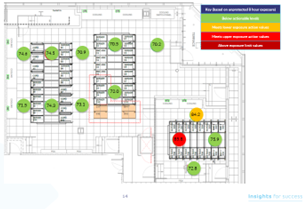
The Equality and Human Rights Commission (EHRC) has published new guidance for employers on how workers experiencing menopause symptoms should be supported at work. They have also updated guidance for businesses, ‘Assistance dogs: A guide for all businesses.’
Menopause in the workplace: Guidance for employers

The new guidance aims to clarify an employer’s legal obligations and provide practical tips for employers on making reasonable adjustments.
The guidance says that menopause can have a significant impact on women at work and references research carried out by the Chartered Institute of Personnel and Development (CIPD) which found 67% of working women between the ages of 40 and 60 with experience of menopausal symptoms said they have had a mostly negative impact on them at work.
Additionally:
79% said they were less able to concentrate.
68% said they experienced more stress.
Nearly half (49%) said they felt less patient with clients and colleagues.
46% felt less physically able to carry out work tasks.
Legal duties
The guidance says that under the Equality Act 2010, workers are protected from discrimination, harassment and victimisation on the basis of protected characteristics, including disability, age and sex.
If menopause symptoms have a long term and substantial impact on a woman’s ability to carry out normal day-to-day activities, they could be considered a disability. If menopause symptoms do amount to a disability, then an employer will be under a legal obligation to make reasonable adjustments.
The guidance contains helpful explainer videos to support the guidance. One video gives examples of workplace reasonable adjustments that employers can make to support their workers and prevent discrimination. Examples include:
Considering how workplace temperature and ventilation could affect menopausal women.
Providing rest areas or quiet rooms.
Providing cooling systems or fans for women experiencing hot flushes.
Menopause in the workplace: Guidance for employers can be found here.
Assistance dogs: A guide for all businesses
The EHRC guidance is aimed at businesses that:

Offer a service to members of the public, whether for payment or not.
Run a private business or a public service.
The guidance explains the legal duties for assistance dog owners under the Equality Act 2010, and how to meet them, clarifies that assistance dogs are considered ‘auxiliary aids’ which is anything that provides additional support or assistance to a disabled person, and that assistance dogs are not legally required to wear an identifying jacket or harness or carry identification, although they may do so.
The guidance says that not allowing assistance dogs into a business effectively denies the disabled person the opportunity to use services or buy goods in the same way other people do, which could amount to disability discrimination and result in financial compensation.
The guidance also contains frequently asked questions regarding allergies, religious beliefs and assistance dogs in food establishments.
Assistance dogs: A guide for all businesses can be found here.
To find out how we can help you with these or any other health and wellbeing issues, please contact us. Please contact us by clicking on the 'Get in touch' button.






